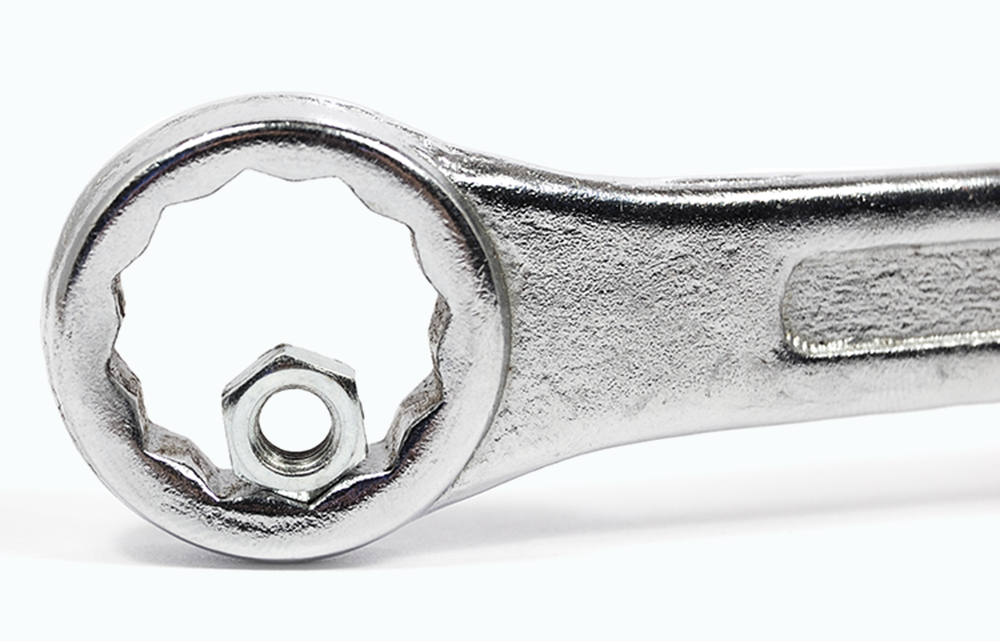What Qualifications Do I Need to Install Fire Alarms?

Introduction
In the United Kingdom, the installation of fire alarms is a crucial aspect of ensuring public safety and compliance with regulations. However, it’s essential to understand the qualifications necessary for individuals involved in this specialised field. In this comprehensive guide, we’ll delve into the qualifications required, the importance of fire safety, and the intricacies of fire alarms.
What Qualifications Are Essential for Installing Fire Alarms?
Before embarking on a career in fire alarm installation, it’s vital to understand the qualifications needed to operate in this field effectively. The British Standard BS 5839 serves as the cornerstone for fire alarm installation practices in the UK.
Fire Alarm Installation: A Critical Component of Fire Safety
Fire alarms play a pivotal role in fire safety measures, alerting occupants of a building in case of a fire emergency. Proper installation is essential to ensure the effectiveness of these systems in safeguarding lives and property.
Understanding Fire Safety Regulations
In the UK, fire safety regulations outline the requirements for fire alarm installation in various types of buildings. Compliance with these regulations is paramount to mitigate the risk of fire-related incidents and ensure the safety of occupants.
The Anatomy of a Fire Alarm System
A fire alarm system consists of several components, including detectors, control panels, and notification devices. Understanding how these elements work together is essential for successful installation and operation.
Fire Alarms vs. Fire Detection Systems: Understanding the Difference
While fire alarms and fire detection systems are often used interchangeably, there are key differences between the two. Fire detection systems focus on early detection, while fire alarms are designed to alert occupants to evacuate in the event of a fire.
The Role of Qualified Installers in the Fire Industry
Qualified fire alarm installers play a crucial role in ensuring the proper installation and maintenance of fire systems. Their expertise ensures that systems are installed according to regulatory standards and operate effectively in case of an emergency.
Specialised Training for Fire Alarm Installers
To become a certified fire alarm installer, individuals must undergo specialised training that covers various aspects of fire alarm installation, maintenance, and troubleshooting. This training provides the necessary knowledge and skills to perform the job effectively.
The European Qualifications Framework and Fire Alarm Installation
The European Qualifications Framework (EQF) provides a reference framework for comparing the qualifications systems of different European countries. In the UK, fire alarm installers must adhere to the standards set by the EQF to ensure competence and consistency in the industry.
The Importance of Proper Training and Certification
Proper training and certification are essential for fire alarm installers to demonstrate their competence and compliance with industry standards. Certification programs ensure that installers have the necessary skills and knowledge to carry out their duties safely and effectively.
Understanding British Standards in Fire Alarm Installation
British Standards, such as BS 5839, outline the best practices for fire alarm installation, maintenance, and testing. Compliance with these standards is essential for ensuring the reliability and effectiveness of fire alarms.
Building Regulations and Fire Alarm Installation
Building regulations in the UK include requirements for fire safety measures, including the installation of fire systems. Compliance with these regulations is mandatory for all new construction projects and renovations to existing buildings.
Wiring Regulations and Fire Alarm Systems
Wiring regulations govern the installation of electrical systems, including fire alarm wiring. Compliance with these regulations is essential to ensure the safety and reliability of fire systems.
Training Courses for Fire Alarm Installers
Numerous training courses are available for individuals interested in pursuing a career in fire alarm installation. These courses cover topics such as system design, installation techniques, and regulatory requirements.
Regulatory Reform Order and Fire Safety Responsibilities
The Regulatory Reform (Fire Safety) Order 2005 places responsibility on building owners and occupiers to ensure the safety of occupants in the event of a fire. Properly installed and maintained fire alarm systems are essential for compliance with these regulations.
Qualification Pathways for Fire Alarm Installers
There are various qualification pathways available for individuals seeking to become certified fire alarm installers. These pathways provide a structured approach to gaining the necessary skills and knowledge required for the role.
Successful Completion of Training Programs
Upon successful completion of training programs and certification exams, individuals are equipped with the skills and knowledge needed to install fire alarm systems competently. This ensures that fire alarm installations meet regulatory standards and operate effectively.
The Role of Competent Persons in Fire Alarm Installation
Competent persons play a crucial role in overseeing fire alarm installation projects, ensuring compliance with regulations and standards. Their expertise and attention to detail are essential for the successful completion of installation projects.
Fire and Security Contract Work: Frequency of Fire System Installations
Fire system installations are often carried out as part of larger fire and security contract work agreements. These contracts may involve the installation of fire alarms, CCTV cameras, access control systems, and other security measures. The frequency of fire system installations varies depending on factors such as the size of the contract, the scope of work, and the needs of the client. Subcontract work provides an opportunity for fire alarm installers to work on multiple projects.
Proving Competence in Fire Alarm Installation
Fire alarm installers must be able to demonstrate their competence through practical experience, training, and certification. Proving competence ensures that installers are capable of performing their duties safely and effectively.
Safety Standards in Fire Alarm Installation
Adherence to safety standards is paramount in fire alarm installation to prevent accidents and ensure the safety of installers and occupants. Safety standards cover aspects such as equipment handling, working at heights, and electrical safety.
Developing a Better Understanding of Fire Alarm Installation
Through comprehensive training and hands-on experience, fire alarm installers develop a better understanding of the intricacies involved in system installation and maintenance. This understanding is crucial for delivering high-quality services to customers.
Installing Fire Alarms: A Practical Approach
The installation of fire alarms involves a combination of theoretical knowledge and practical skills. Installers must possess the necessary expertise to carry out installation work efficiently and accurately.
The Importance of Four Units in Fire Alarm Installation
Fire alarm systems typically consist of four main units: detectors, control panels, notification devices, and power supplies. Each unit plays a vital role in the overall functionality of the system.
British Standards: Relevant Parts for Fire Alarm Installation
British Standards outline specific requirements for fire alarm installation, including the selection and placement of equipment, wiring methods, and testing procedures. Compliance with these standards ensures the reliability and effectiveness of fire alarm systems.
System Integration in Fire Alarm Installation
Fire alarm systems may need to be integrated with other building systems, such as security systems and emergency lighting. Proper integration ensures seamless operation and enhanced safety in case of an emergency.
Fire Alarm Installation Company: Choosing the Right Partner
When selecting a fire alarm installation company, it’s essential to consider factors such as experience, expertise, and reputation. Working with a reputable company ensures that installations are carried out to the highest standards of quality and compliance.
Understanding Customer Needs in Fire Alarm Installation
Effective communication with customers is essential for understanding their specific requirements and preferences regarding fire alarm systems. Installers must tailor their services to meet the unique needs of each customer.
Cable Selection and Installation in Fire Alarm Systems
The selection and installation of appropriate cables are critical aspects of fire alarm system installation. Cables must be chosen based on factors such as fire resistance, durability, and compatibility with other system components.
Wireless Fire Alarm Systems: Advantages and Considerations
Wireless fire alarm systems offer flexibility and ease of installation compared to traditional wired systems. However, installers must consider factors such as signal strength, battery life, and interference when deploying wireless solutions.
Legal Considerations in Fire Alarm Installation
Installers must comply with various legal requirements and regulations governing fire alarm installation, including building codes, health and safety laws, and industry standards. Failure to adhere to these regulations can result in legal liabilities and penalties.
Ensuring Compliance with Criteria and Standards
Installers must ensure that fire alarm installations meet the criteria and standards set forth by regulatory bodies and industry organisations. Compliance with these standards is essential for ensuring the safety and reliability of installed systems.
Fire Alarm Service and Maintenance
Regular service and maintenance are essential for ensuring the continued reliability and effectiveness of fire alarm systems. Installers must provide ongoing support to customers to ensure that systems remain in optimal condition.
Testing and Certification of Fire Alarm Systems
Before commissioning a fire alarm system, installers must conduct thorough testing to ensure proper functionality and compliance with regulatory requirements. Certification provides assurance that systems meet industry standards and specifications.
Environmental Considerations in Fire Alarm Installation
Installers must consider environmental factors such as temperature, humidity, and exposure to elements when installing fire alarm systems. Proper environmental considerations ensure the longevity and reliability of installed systems.
Fault Diagnosis and Troubleshooting
In the event of a fault or malfunction, installers must diagnose and troubleshoot issues promptly to minimise downtime and ensure the continued operation of fire alarm systems. Rapid response and effective problem-solving are essential for maintaining system integrity.
The Future of Fire Alarm Installation
Advancements in technology and industry standards will continue to shape the future of fire alarm installation. Installers must stay abreast of emerging trends and developments to deliver innovative solutions that meet the evolving needs of customers.
Every Job is Easier if You Have the Right Tools
